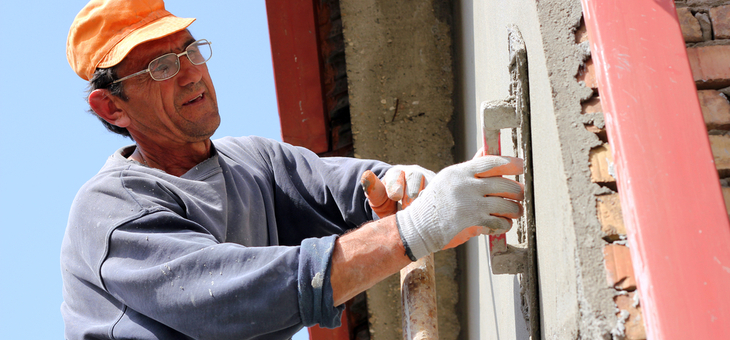It has long been assumed that those with a more active, physical lifestyle are better protected from developing dementia, but that may not hold true when it comes to a person’s working life.
In fact, the muscles and joints may not be the only parts of the body worn down by hard physical work, the brain may suffer as well.
A study from the University of Copenhagen shows that people doing hard physical work have a 55 per cent higher risk or developing dementia than those doing sedentary work.
The general view has been that physical activity normally reduces the risk of dementia, with this study showing how regular aerobic exercise can help older adults perform better in thinking and memory tests.
However, Associate Professor Kirsten Nabe-Nielsen said the form of physical activity seemed to play an important role in dementia risk.
“Before the study we assumed that hard physical work was associated with a higher risk of dementia. It is something other studies have tried to prove, but ours is the first to connect the two things convincingly,” she said.
“For example, the WHO guide to preventing dementia and disease on the whole mentions physical activity as an important factor. But our study suggests that it must be a ‘good’ form of physical activity, which hard physical work is not.
“Guides from the health authorities should, therefore, differentiate between physical activity in your spare time and physical activity at work, as there is reason to believe that the two forms of physical activity have opposite effects.
Professor Andreas Holtermann, who worked on the study, said he hoped the findings would lead to a focus on prevention as it appeared as though changes in the brain start to occur long before a person leaves the workforce.
“A lot of workplaces have already taken steps to improve the health of their staff,” Prof Holtermann said. “The problem is that it is the most well-educated and resourceful part of the population that uses these initiatives.
“Those with a shorter education often struggle with (being) overweight, pain and poor physical fitness, even though they take more steps during the day and to a larger extent use their body as a tool.
“For workmen, it is not enough, for example, to avoid heavy lifts if they wish to remain in the profession until age 70.
“People with a shorter education doing manual labour also need to take preventive steps by strengthening the body’s capacity via, for example, exercise and strength training.”
The study was based on the data of 4721 Danish men, who back in the 1970s reported data on the type of work they did on a daily basis.
Over time the researchers have compiled health data on the men in this study including the development of dementia conditions.
The figures were then adjusted for lifestyle factors including smoking, blood pressure, weight, alcohol intake, etc.
Assoc. Prof. Nabe-Nielsen said that previous studies had suggested that hard physical work could have a negative impact on blood circulation and that this could lead to poor blood supply to the brain, which could contribute to the increased risk of dementia.
It could also lead to the development of high blood pressure, blood clots in the heart, heart cramps and heart failure.
Have you spent the majority of your working life doing physical labour or more sedentary work? Are you surprised by these findings?
If you enjoy our content, don’t keep it to yourself. Share our free eNews with your friends and encourage them to sign up.
Related articles:
https://www.yourlifechoices.com.au/health/news/bad-air-is-bad-for-your-brain
https://www.yourlifechoices.com.au/health/news/treatment-depends-on-where-you-live
https://www.yourlifechoices.com.au/health/news/aussies-living-longer

